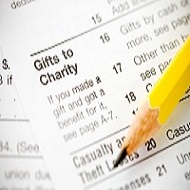As tax filing season gets underway, taxpayers may be wondering how to handle payments received under various assistance programs related to the COVID-19 pandemic. The good news is that most payments are not included in income and not taxable—though some expenses may still be taken.
As a refresher, Congress has enacted a number of programs aimed at helping small and mid-sized businesses weather the pandemic, including the following:
• Paycheck Protection Program loans, which are forgivable if certain requirements are met;
• Small Business Administration 7(a) loans;
• EIDL program grants;
• Shuttered venue operator grants; and
• Restaurant revitalization grants.
All of the programs described above, including any related forgiveness of debt, are eligible for income exclusion. This income exclusion is an exception from rules that generally require the recognition of income and that specifically require the recognition of cancellation of indebtedness income.
In addition, expenses paid using the loans and grants mentioned above are deductible, despite the general prohibition on deductive expenses that are reimbursed to the taxpayer. Also, taxpayers are not required to reduce their tax attributes or forgo a basis increase because they had loans forgiven or received grant funds.
Similarly, the IRS has posted guidance that emergency financial aid grants received by students due to the pandemic are not taxable—this includes payments from government agencies, higher education organizations or scholarship-granting organizations.


